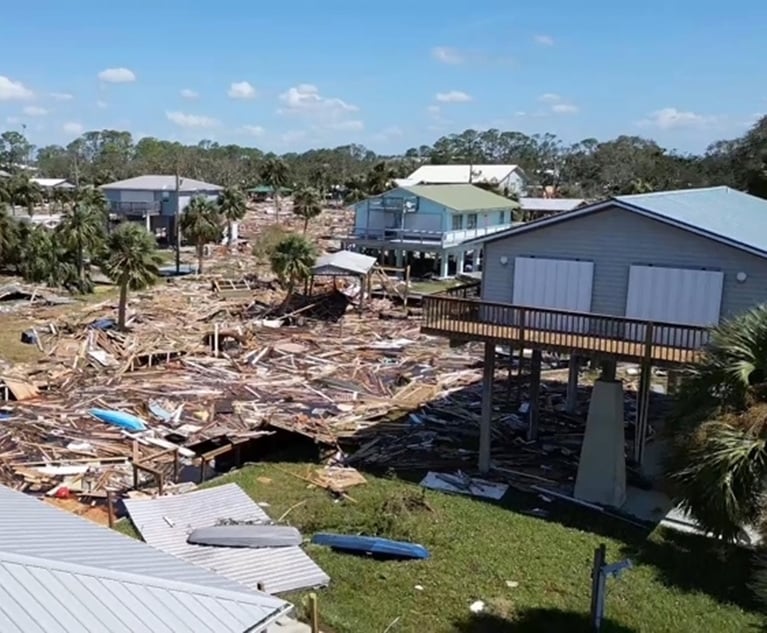 Storm damage in Florida from Hurricane Helene. (Photo: Mark Rankin/U.S. Army Corps of Engineers, Jacksonville District)
Storm damage in Florida from Hurricane Helene. (Photo: Mark Rankin/U.S. Army Corps of Engineers, Jacksonville District)
After years of issues plaguing Florida's insurance market, Hurricane Helene's devastation is a signal of potentially more challenges ahead.
Recommended For You
Want to continue reading?
Become a Free PropertyCasualty360 Digital Reader
Your access to unlimited PropertyCasualty360 content isn’t changing.
Once you are an ALM digital member, you’ll receive:
- Breaking insurance news and analysis, on-site and via our newsletters and custom alerts
- Weekly Insurance Speak podcast featuring exclusive interviews with industry leaders
- Educational webcasts, white papers, and ebooks from industry thought leaders
- Critical converage of the employee benefits and financial advisory markets on our other ALM sites, BenefitsPRO and ThinkAdvisor
Already have an account? Sign In Now
© 2025 ALM Global, LLC, All Rights Reserved. Request academic re-use from www.copyright.com. All other uses, submit a request to [email protected]. For more information visit Asset & Logo Licensing.








